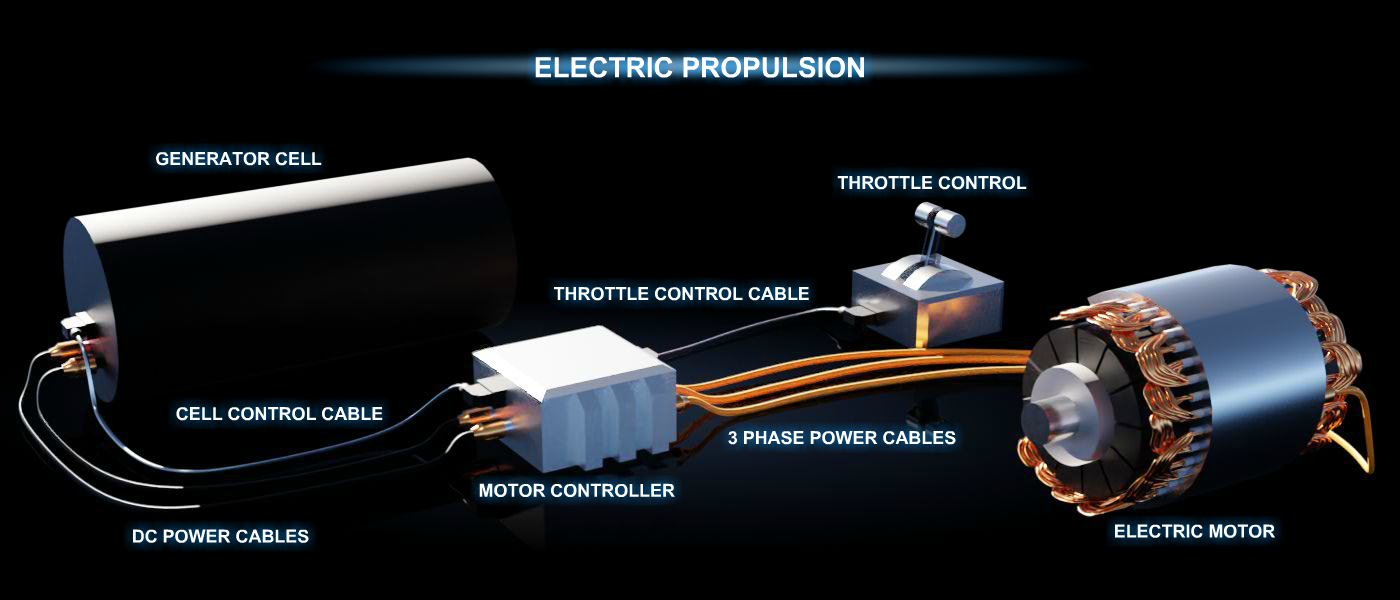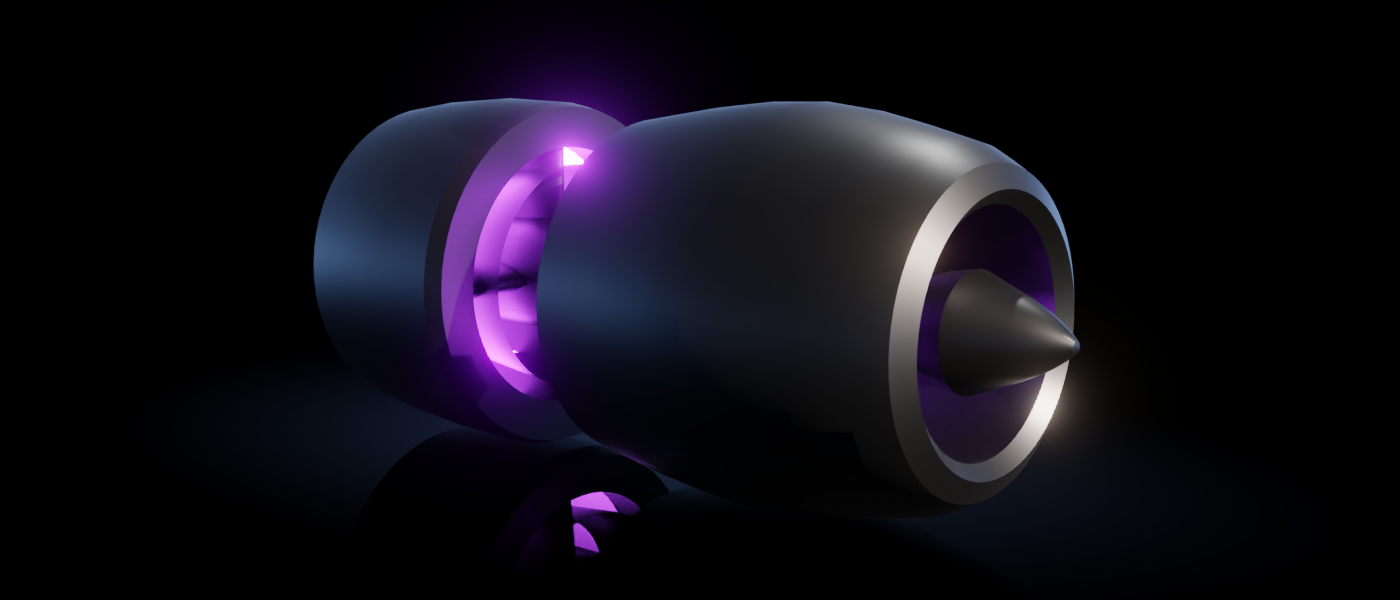
Black Kestrel's electric propulsion system is designed for high-performance, high-altitude, energy-efficient and long endurance flight. Seamlessly integrated with our Generator Cell energy storage technology each of its two engines are powered by three high-speed, three-phase permanent magnet motors, delivering precise, instant thrust with exceptional efficiency, its advanced air cooling system prevents overheating and ensures consistent performance in extreme conditions.
At the core of our electric aircraft propulsion technology is an aerodynamically optimised ducted fan, engineered for maximum thrust-to-weight ratio and near-silent operation. The enclosed design enhances airflow efficiency, reduces drag, and improves stability, making it ideal for extreme altitude performance. Supported by frictionless magnetic bearings, the system operates with minimal mechanical wear, ensuring longevity and reliability even under demanding conditions.

Our ducted fan propulsion system is engineered for maximum efficiency, power, and reliability. With a high thrust-to-weight ratio, optimized aerodynamics, and near-silent operation, this electric propulsion solution is designed for high-altitude and long-endurance flight.
The XE-21's propulsion system is engineered for maximum thrust with minimal energy loss. Each engine is powered by three high-speed, three-phase permanent magnet motors, delivers exceptional power while maintaining a lightweight structure. This results in an industry-leading thrust-to-weight ratio, reducing energy consumption while maximizing performance.
Seamlessly integrated with our cutting-edge Generator Cell, the propulsion system optimizes power delivery through advanced energy storage and management. Intelligent thermal regulation ensures optimal motor temperatures, preventing overheating while enhancing efficiency. This system not only maximizes endurance but also extends operational lifespan.
Designed for flight at the edge of space, our propulsion technology thrives in low-density air environments where traditional electric systems lose efficiency. Proprietary motor tuning, precision speed control, and adaptive energy output ensure consistent performance from takeoff to extreme altitudes, pushing the limits of electric aviation.
The propulsion system is built with flexibility in mind. Its modular architecture allows for easy integration into various aircraft configurations, from UAVs to next-generation electric jets. Future advancements can be seamlessly incorporated, making it a scalable solution for evolving aerospace applications.
Explore electric propulsion in full interactive 3D. Discover the propulsion technology behind our electric aircraft.

At Black Kestrel our propulsion research goes beyond electric motors, exploring next-generation technologies that could revolutionise electric flight. By advancing Ionic Thrust, Electric Thermal Rockets and our proprietary Electro-Magnetic Reaction Mass Pulse Drive, we aim to push the limits of efficiency, thrust, and endurance for future aircraft and spaceflight applications.
Ionic thrust technology uses electrostatic forces to accelerate ionized air, generating thrust without moving parts. While traditionally limited to low-thrust applications, advances in high-voltage power systems and optimized ionization techniques could make this a viable option for silent, ultra-efficient propulsion in Earth's atmosphere.

The Electric Thermal Rocket (ETR) converts electrical energy into heat to superheat a propellant, creating thrust similar to a traditional rocket but with superior efficiency. By leveraging the high energy output of the Generator Cell, ETR technology could enable high-altitude, near-space operations, and even deep-space missions, with vastly reduced propellant requirements compared to chemical rockets.
Black Kestrel's proprietary Electro-Magnetic Reaction Mass Pulse Drive (EM-RMPD) is an experimental propulsion system designed to generate thrust by electromagnetically accelerating reaction mass in controlled pulses. This concept aims to deliver higher thrust levels than traditional ion propulsion, with the potential for atmospheric and near-space applications. Our focused is on optimising reaction mass acceleration to make this a practical propulsion solution for future aircraft and spacecraft.
Stay informed on the latest propulsion advancements by visiting our:
We offer licensing opportunities for our technology, whether you're interested in our Generator Cell, electric propulsion systems, or emerging drive technologies.
For aviation enthusiasts and professionals looking to explore the technology behind our aircraft, the Restricted Hangar offers exclusive access to detailed insights, advanced applications, and behind-the-scenes updates. Gain entry to this premium content area and join us in shaping the future of electric aviation.